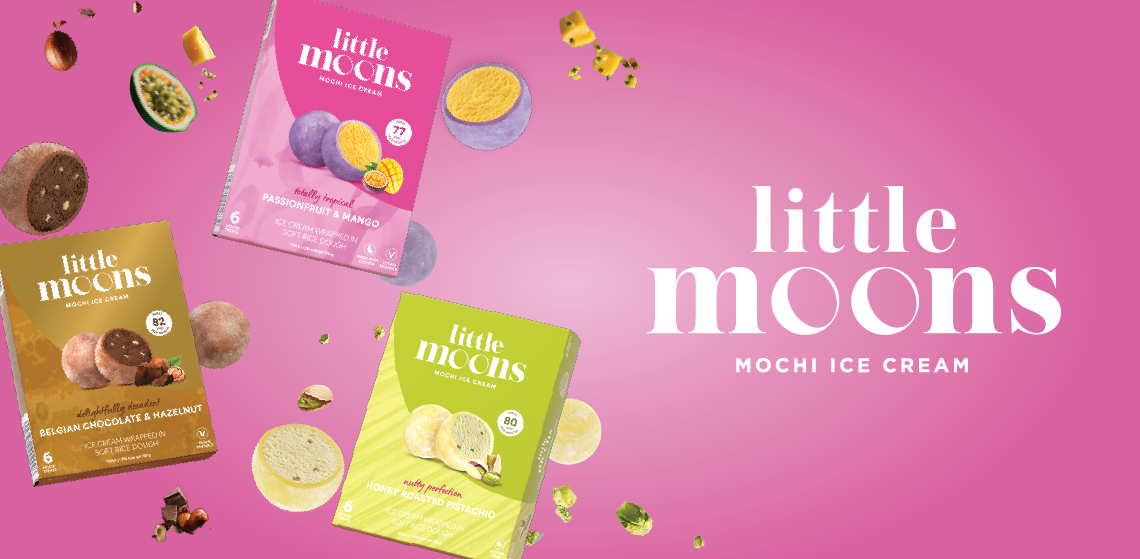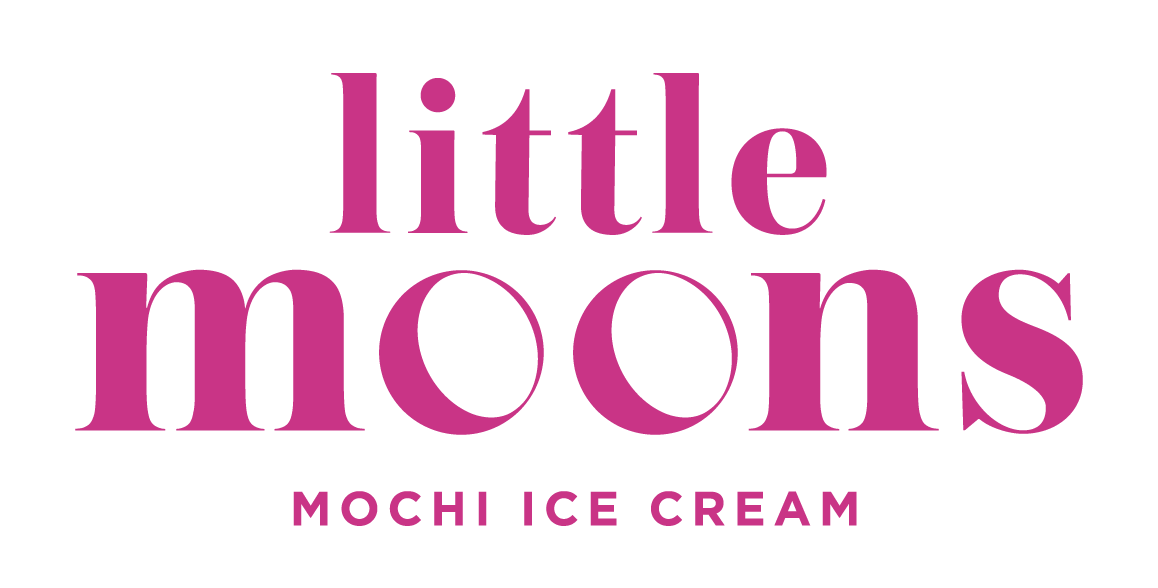

Little Moons

London Borough of Brent, United Kingdom
December 2024
Food products
Manufacturing
Australia,
Austria,
Belgium,
France,
Germany,
Ireland,
Italy,
New Zealand,
Spain,
Switzerland,
United Arab Emirates,
United Kingdom
Little Moons are bite-sized balls of gelato, cheesecake, ganache and other delicious sweet fillings wrapped in soft-sweet mochi dough. They’re colourful little frozen and chilled treats designed to give you a little lift. Founded in 2010 by siblings Vivien and Howard Wong, Little Moons are crafted with generations of mochi-making expertise. Vivien and Howard grew up in their parents’ Asian bakery in North London, developing the original recipes with the benefit of years of mochi mastery. Little Moons’ growth continues to accelerate, and you can now find their mochi in over 35 countries around the world. They’re committed to delivering their ambitions the right way, and having used B Corp as a guide for embedding sustainability, they strive to consider the impact of business on all stakeholders. Little Moons is proud to become a Certified B Corp, and make treats that brighten your day, to high social and environmental standards.
Overall B Impact Score
Governance 18.1
Governance evaluates a company's overall mission, engagement around its social/environmental impact, ethics, and transparency. This section also evaluates the ability of a company to protect their mission and formally consider stakeholders in decision making through their corporate structure (e.g. benefit corporation) or corporate governing documents.
What is this? A company with an Impact Business Model is intentionally designed to create a specific positive outcome for one of its stakeholders - such as workers, community, environment, or customers.
Workers 25.2
Workers evaluates a company’s contributions to its employees’ financial security, health & safety, wellness, career development, and engagement & satisfaction. In addition, this section recognizes business models designed to benefit workers, such as companies that are at least 40% owned by non-executive employees and those that have workforce development programs to support individuals with barriers to employment.
Community 23.3
Community evaluates a company’s engagement with and impact on the communities in which it operates, hires from, and sources from. Topics include diversity, equity & inclusion, economic impact, civic engagement, charitable giving, and supply chain management. In addition, this section recognizes business models that are designed to address specific community-oriented problems, such as poverty alleviation through fair trade sourcing or distribution via microenterprises, producer cooperative models, locally focused economic development, and formal charitable giving commitments.
Environment 18.9
Environment evaluates a company’s overall environmental management practices as well as its impact on the air, climate, water, land, and biodiversity. This includes the direct impact of a company’s operations and, when applicable its supply chain and distribution channels. This section also recognizes companies with environmentally innovative production processes and those that sell products or services that have a positive environmental impact. Some examples might include products and services that create renewable energy, reduce consumption or waste, conserve land or wildlife, provide less toxic alternatives to the market, or educate people about environmental problems.
Customers 4.1
Customers evaluates a company’s stewardship of its customers through the quality of its products and services, ethical marketing, data privacy and security, and feedback channels. In addition, this section recognizes products or services that are designed to address a particular social problem for or through its customers, such as health or educational products, arts & media products, serving underserved customers/clients, and services that improve the social impact of other businesses or organizations.